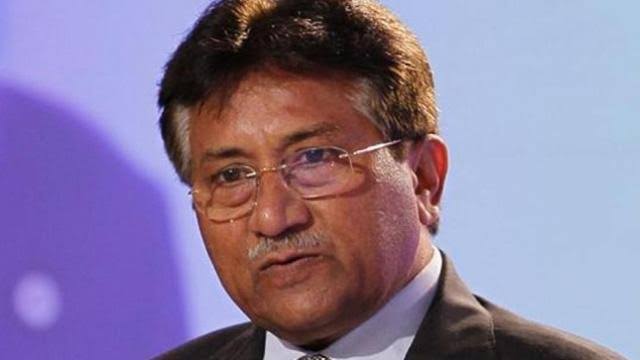Musharraf approaches Pak SC to suspend death sentence ruling by special court in high treason case
Fri 17 Jan 2020, 10:40:22

Islamabad: Pakistan's self-exiled former dictator Pervez Musharraf on Thursday approached the Supreme Court to challenge the ruling of a special court that had handed him death sentence on charges of high treason.
The special court in Islamabad on December 17 last handed down the death penalty to the 74-year-old retired general, now based in Dubai, after six years of hearing the high-profile treason case against him.
The Pakistan Muslim League-Nawaz (PML-N) government led by former prime minister Nawaz Sharif had filed the treason case against the former army chief in 2013 over the imposition of an extra-constitutional emergency in November 2007, which led to the confinement of a number of superior court judges in their houses and sacking of over 100 judges.
On Monday, Musharraf's trial in the high treason case was declared as "unconstitutional" by the Lahore High Court (LHC), leading to the annulment of the death sentence against the ex-Pakistan Army chief.
In a huge reprieve for Musharraf, the LHC declared that the formation of the special court was "unconstitutional" and that the treason case against the former president was not prepared in accordance with the
law.
law.
Barrister Salman Safdar, the counsel for Musharraf, submitted the 90-page petition challenging the special court verdict in the top court. In the petition, the former president urged the Supreme Court to declare the special court ruling null and void.
"Any other remedy that the honourable court deems fit and proper may also be granted," the appeal said.
The petition stated that Musharraf's absence at the hearing of the special court was not intentional and he was unable to appear before it as he was suffering ill health, the Express Tribune reported.
It further stated that the special court had accepted Musharraf's ailment but convicted the former president in absentia.
Musharraf, who has been living in Dubai since March 2016, left Pakistan for medical treatment and has not returned since, citing security and health reasons.
Dr Muhammad Amjad, Musharraf's close aide and the ex-chairperson of his All Pakistan Muslim League (APML) party, has said that the former president was rapidly becoming weaker due to an unknown disease, which is why he was unable to return to Pakistan to face the treason case.
No Comments For This Post, Be first to write a Comment.
Most viewed from International
Most viewed from World
AIMIM News
Latest Urdu News
Most Viewed
May 26, 2020
Do you think Canada-India relations will improve under New PM Mark Carney?
Latest Videos View All
Like Us
Home
About Us
Advertise With Us
All Polls
Epaper Archives
Privacy Policy
Contact Us
Download Etemaad App
© 2025 Etemaad Daily News, All Rights Reserved.

.jpg)
.jpg)
.jpg)






.jpg)


.jpg)
.jpg)
.jpg)
.jpg)
.jpg)
.jpg)
.jpg)
.jpg)
.jpg)
.jpg)
.jpg)
.jpg)

















